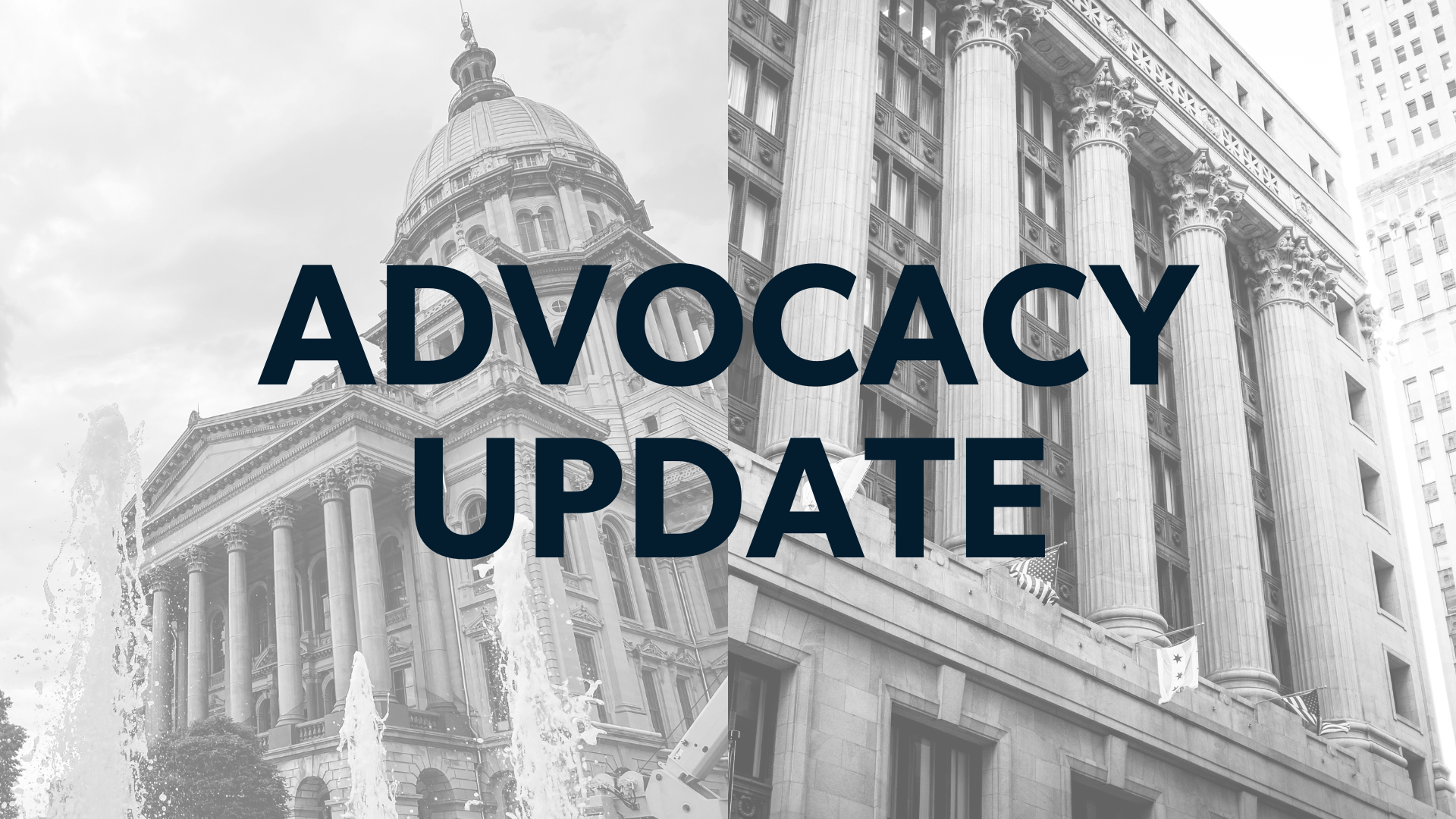On Tuesday, July 2, we held our monthly “Coffee with Your GADs” chat, where members join our Government Affairs Director Brian Bernardoni for an informal discussion about policy and politics impacting the real estate industry. This is an opportunity for members to learn about CAR’s current advocacy initiatives and share any news or trends of interest.
Local Issues
Condominiums and Handicap Parking Spaces
In 2017, Alderman Reilly proposed an ordinance to address how condominium owners provide parking spaces for those with disabilities. In cases where the reserved spaces are not being used, the ordinance calls for the spaces to be rented on a month-to-month basis. While CAR supports the ordinance conceptually, there are concerns as we begin to look at the issue on a more granular level. As proponents of the ordinance try to have it reintroduced under the Lightfoot administration, CAR is following the issue closely, to make sure there aren’t retroactive ramifications in cases where parking spaces are already owned by non-handicap individuals.
Taxes
Cook County Board President Toni Preckwinkle says there will not be a tax increase in 2020. However, this doesn’t mean the levy won’t be increased as the County tries to keep the rates at the same level. That would cause taxes to increase as a result.
CAR will continue to watch these conversations closely as we approach 2021 – the year we’ll see the Chicago reassessment and Mayor Lightfoot’s new taxes.
Transfer Taxes
There are currently two transfer tax proposals on the table: The first is to raise the transfer tax from $3.75 to $9.75. The second calls for a reduction in transfer taxes for sales under $1 million, and a sliding scale for buildings over $1 million.
CAR believes these proposals punish buyers and sellers. For buyers, it’s an inhibitor and for sellers, it strips away equity. These would be counterproductive as the city of Chicago looks for ways to incentivize investment. The increases are proposed to help address issues of homeless, lead pipes and police and fire pensions. CAR maintains that the increases aren’t a significant enough or reliable enough revenue stream to address such important issues.
It’s also concerning to have these conversations be so prominent in the media during the summertime, a busy transaction season, as it could deter potential buyers.
Lobbying
CAR is working with the Association Forum on concerns around the lobbying ordinance. Mayor Lightfoot’s administration has expanded the definition of a lobbyist:
Lobbyist means any person who, on behalf of any person other than himself, or as any part of his duties as an employee of another, undertakes to influence any legislative or administrative action, including but not limited to:
1) a bond inducement ordinance; (2) a zoning matter; (3) a concession agreement; (4) the creation of a tax increment financing district; (5) the establishment of a Class 6(b) Cook County property tax classification; (6) the introduction, passage or other action to be taken on an ordinance, resolution, motion, order, appointment or other matter before the City Council; (7) the preparation of contract specifications; (8) the solicitation, award or administration of a contract; (9) the award or administration of a grant, loan, or other agreement involving the disbursement of public monies; or (10) any other determination made by an elected or appointed City official or employee of the City with respect to the procurement of goods, services or construction; provided, however, that a person shall not be deemed to have undertaken to influence any legislative or administrative action solely by submitting an application for a City permit or license or by responding to a City request for proposals or qualifications.
Any person falling into any of the aforementioned definitions must register as a lobbyist. For instance, this would include a religious leader who receives money from their congregation and wants to speak about a nearby abandoned property.
This definition surely impacts REALTORS® who choose to participate in advocacy and public policy initiatives. CAR stands in solidarity with Association Forum on this issue, as both organizations believe this infringes on the rights of individuals.
The Central City Strategy for All of Chicago
This month, we were joined by special guest Kelley O’Brien, Executive Director of the Chicago Central Area Committee (CCAC) and President and CEO of its sister organization, the Alliance for Regional Development. Both organizations work to spur investment, growth and opportunity within Chicagoland and Milwaukee-Chicagoland-Northwest Indiana corridor. Their members come from a wide range of sectors and industries, but share the common goal of wanting to keep our region healthy and strong.
During the Rahm Emmanuel Administration, there was a promise of funds being set aside to help Chicago’s neighborhoods – the Neighborhood Opportunity Fund. The CCAC members got involved to make sure the money would go toward initiatives that actually help the communities, and as a result, they started programs to help each other and the community have a better understanding of that meant and looked like. Together they built the Central City Strategy for All of Chicago. During her visit to CAR, Kelley shared this slideshow presentation on the strategy, and encouraged REALTORS® to watch the following video to learn more:
What’s Next?
- We’re taking a break for August, but Coffee with Your GAD will be back in September. Space fills quickly, so sign up today.
- Read the midyear advocacy update in the latest issue of Chicago REALTOR® Magazine.







